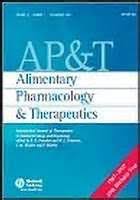Yuen E, Romney M, Toner RW, Cobb NM, Katz PO, Spodik M, Goldfarb NI
Aliment Pharmacol Ther. 2010 Sep;32(5):645-54.
BACKGROUND:
While there is evidence of ethnic variation in the prevalence of gastro-oesophageal reflux disease (GERD) symptoms, few population-based studies examine GERD symptom prevalence amongst the growing Hispanic minority in the US as well as Asians in the West.
AIM:
To examine the prevalence, awareness and care patterns for GERD across different ethnic groups.
METHODS:
A population-based, cross-sectional survey was fielded in English, Chinese and Spanish that assessed self-reported GERD prevalence, awareness and care patterns in four ethnic groups (Caucasian, African American, Asian, Hispanic).
RESULTS:
A total of 1172 subjects were included for analysis: 34.6% experienced GERD symptoms at least monthly, 26.2% at least weekly and 8.2% at least daily. Statistically significant differences in raw prevalence rates between racial groups were found: 50% of Hispanics experienced heartburn at least monthly, compared with 37% of Caucasians, 31% of African Americans and 20% of Asians (P > 0.0001). Significant differences in knowledge and care-seeking patterns by ethnicity were also observed.
CONCLUSIONS:
This study confirms the high prevalence of GERD symptoms in the US and introduces Hispanics as the ethnicity with the highest prevalence rate. Asians in the US have higher rates of symptoms than in the Far East. These data demonstrate a need for culturally appropriate education about GERD symptoms and treatment.
Link to open access article: Yuen E, et al; Aliment Pharmacol Ther. 2010 Sep;32(5):645-54.


